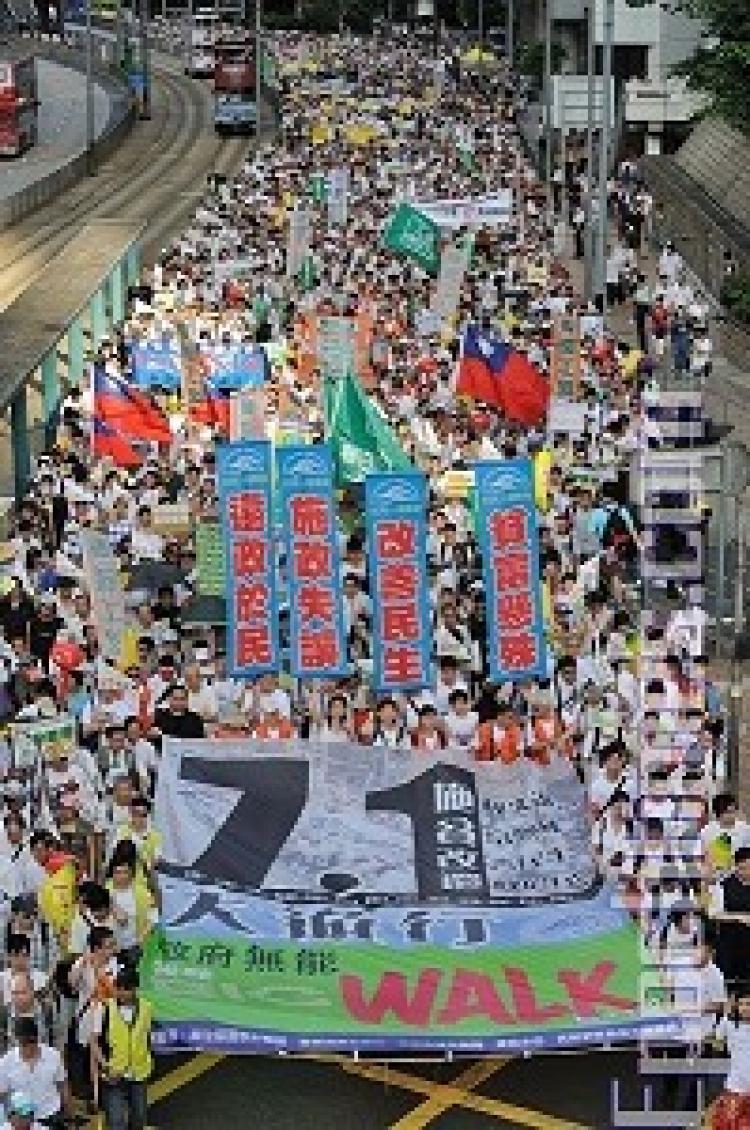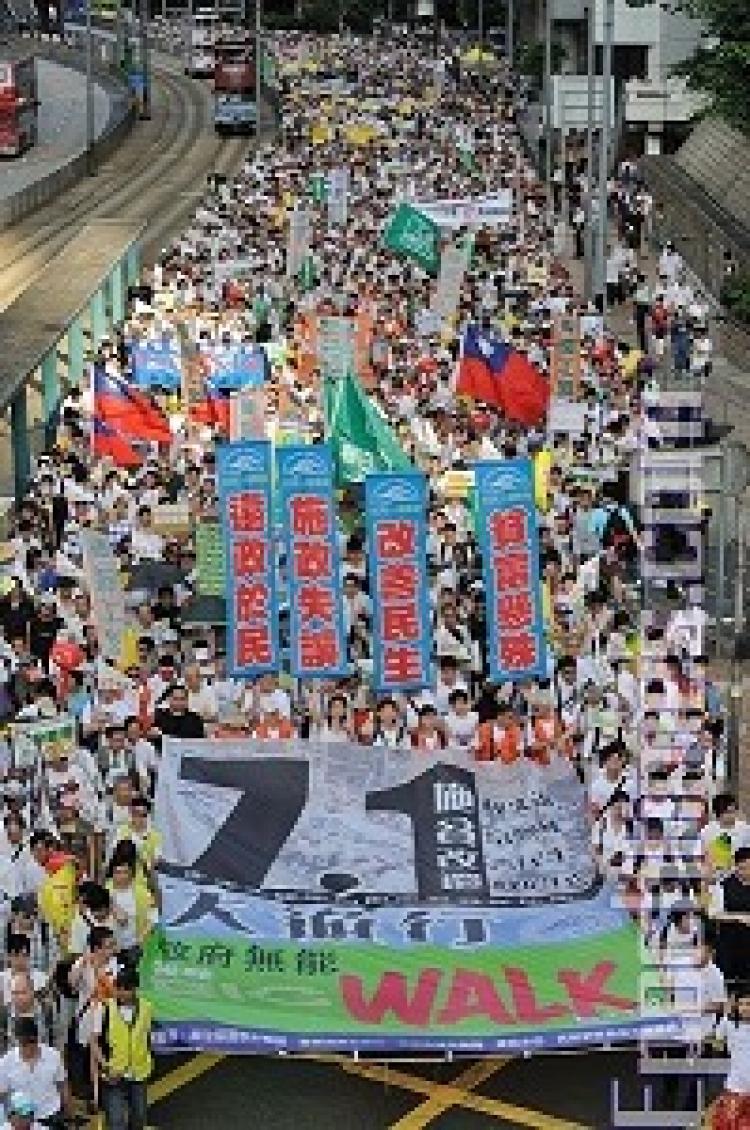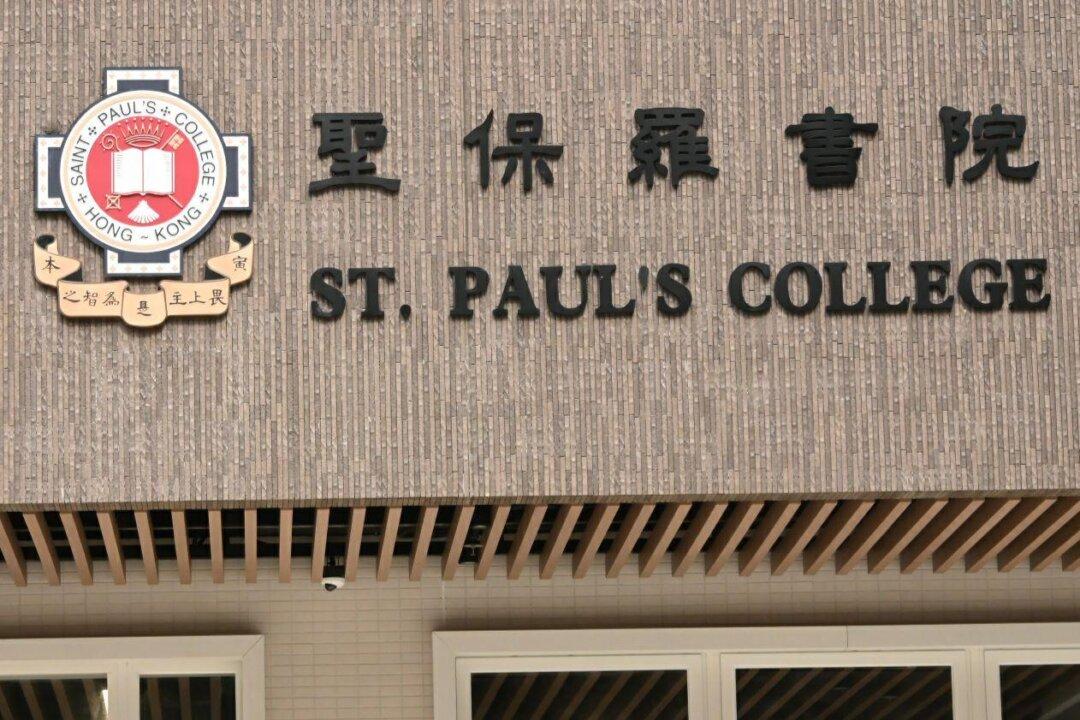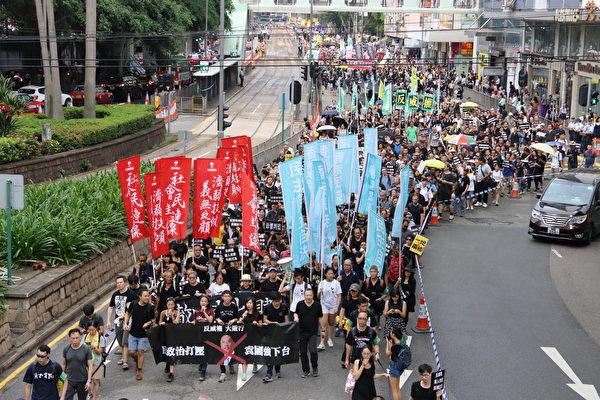HONG KONG—On July 1, 2009, people marched in Hong Kong for the seventh consecutive year in protest of the Chief Executive’s subordination to Beijing and the Hong Kong government’s poor governance. The police imposed many restrictions, beyond the measures they had taken in previous years.
Despite the scorching sun and hot temperature reaching 31 degrees Celsius (88 degrees Fahrenheit), close to 80,000 people took to the streets to express their demands. This number exceeded that of last year, and it took the entire procession over four hours to reach the final destination.
The July 1 march, initiated by the Civil Human Rights Front, started from Victoria Park at 3:30 p.m. With a huge banner in the front, protesters shouted slogans loudly and sang democratic songs along the route.
The organizers asked participants to wear white clothing to demonstrate their determination to fight for democracy. Some people wrote slogans on their clothing like “Incompetent Government,” “Donald Tsang does not represent me” and “Donald Tsang Step Down.”
Mr. Li, who participates in the march every year, accused the government of making many mistakes. “Many things were not done according to the people’s wishes.” He said, “All the benefits go to the consortiums. Policies were made according to the interests of consortiums, not for the people, and so I must step forward to support universal suffrage. Only with universal suffrage can there be democracy, and only with democracy can there be a Hong Kong ruled by law.”
Another Mr. Li, who is in his forties, said that he has joined the July 1 march every year since 2003 when people began to oppose the repressive Article 23 Legislation [which calls upon the Hong Kong Special Administrative Region to enact laws on its own to prohibit any so-called act of treason, secession, sedition, subversion or theft of so-called state secrets, etc. against the “Central People’s Government,” i.e. the Mainland Chinese Communist Party (CCP) regime]. He wonders how much longer the CCP can last.
He pointed out that as long as the CCP’s one-party dictatorship continues to exist, there is no hope of democracy in China. When there is no democracy in mainland China, there can be no democracy in Hong Kong.
In addition, there were more petitioners coming from mainland China specifically to join the march to voice their grievances than last year. Three of them said that their houses had been forcefully taken, and they had appealed countless times for over ten years to no avail. One of them, Mr. Xie, said, “Only 300,000 yuan (US$43,903) was compensated for over 10 million yuan worth of property. It is unfair and unreasonable. We come together to join the march in Hong Kong from mainland China to let people know the illegal things that the (CCP) regime has done. We have contacted many lawyers, but they say that it was too complicated and do not dare to accept our case.”
“China’s judicial system is corrupt,” Xie said. ”We have no way out, so we have come to join this march in Hong Kong to voice our demands.”
July 1 was also the Global Disintegration of the CCP Day proclaimed by the Global Quitting the CCP Service Center. A group of supporters for withdrawal from the CCP, including some Falun Gong practitioners, also joined the march. They called upon people in mainland China to break away from the CCP as soon as possible, and stressed that only by disintegrating the CCP can mainland China and Hong Kong have true democracy.
Read the original Chinese article .






